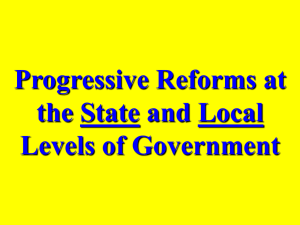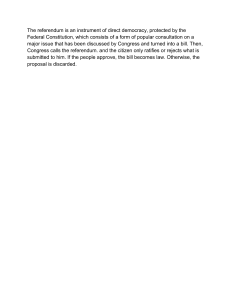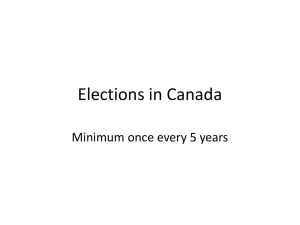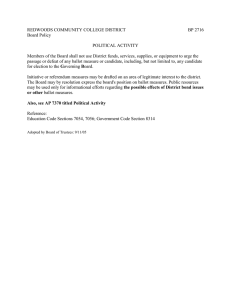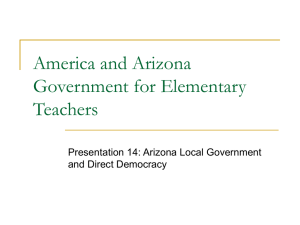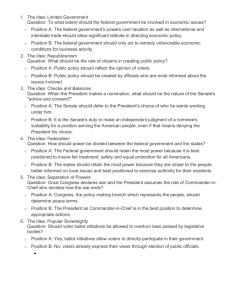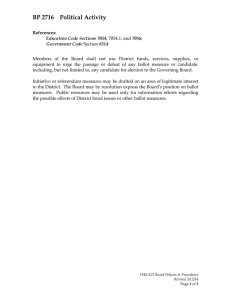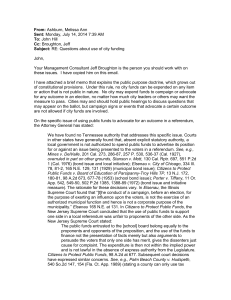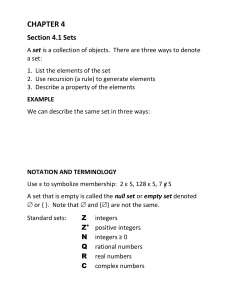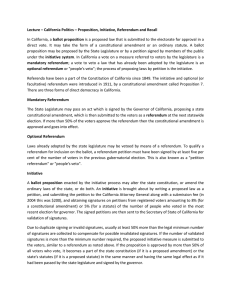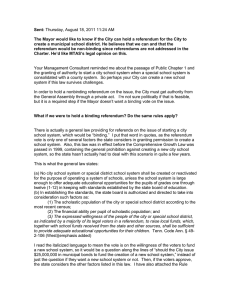10.2.15 Square Deal was Teddy Roosevelt’s domestic policy (inside the country)
advertisement
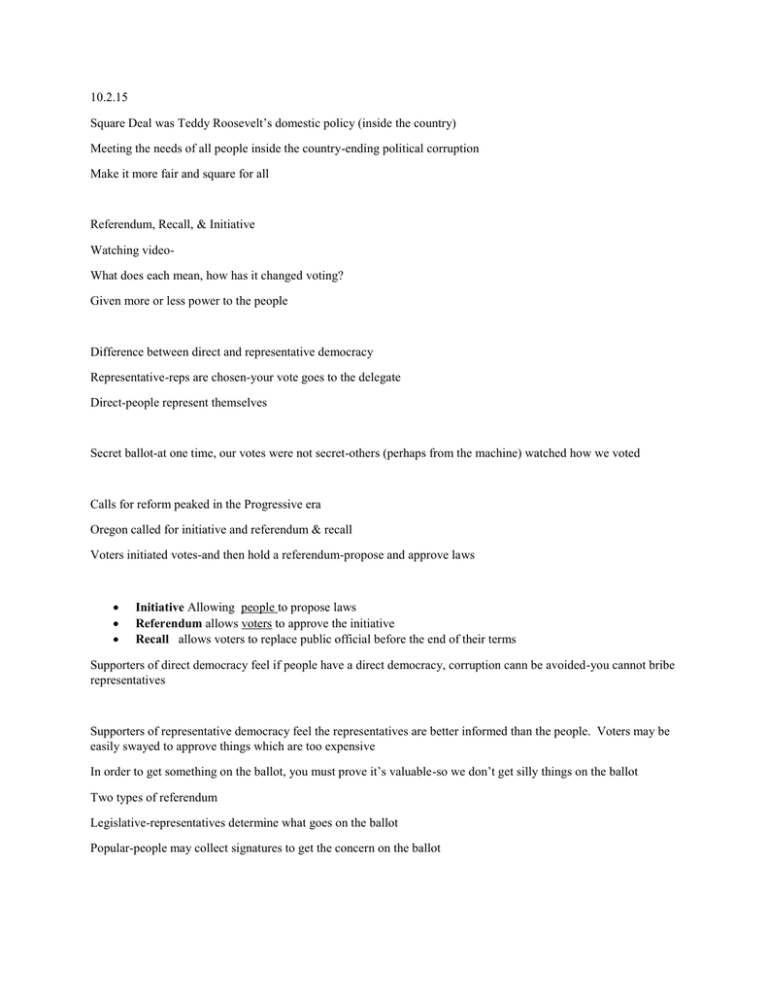
10.2.15 Square Deal was Teddy Roosevelt’s domestic policy (inside the country) Meeting the needs of all people inside the country-ending political corruption Make it more fair and square for all Referendum, Recall, & Initiative Watching videoWhat does each mean, how has it changed voting? Given more or less power to the people Difference between direct and representative democracy Representative-reps are chosen-your vote goes to the delegate Direct-people represent themselves Secret ballot-at one time, our votes were not secret-others (perhaps from the machine) watched how we voted Calls for reform peaked in the Progressive era Oregon called for initiative and referendum & recall Voters initiated votes-and then hold a referendum-propose and approve laws Initiative Allowing people to propose laws Referendum allows voters to approve the initiative Recall allows voters to replace public official before the end of their terms Supporters of direct democracy feel if people have a direct democracy, corruption cann be avoided-you cannot bribe representatives Supporters of representative democracy feel the representatives are better informed than the people. Voters may be easily swayed to approve things which are too expensive In order to get something on the ballot, you must prove it’s valuable-so we don’t get silly things on the ballot Two types of referendum Legislative-representatives determine what goes on the ballot Popular-people may collect signatures to get the concern on the ballot Recall-exists to allow voters to remove representatives whom they feel are not doing the job NJ is a state with recall-designed to keep politicians honest 2003 Gray Davis recalled in California-a referendum was held to remove him-Arnold Schwarzenegger won
